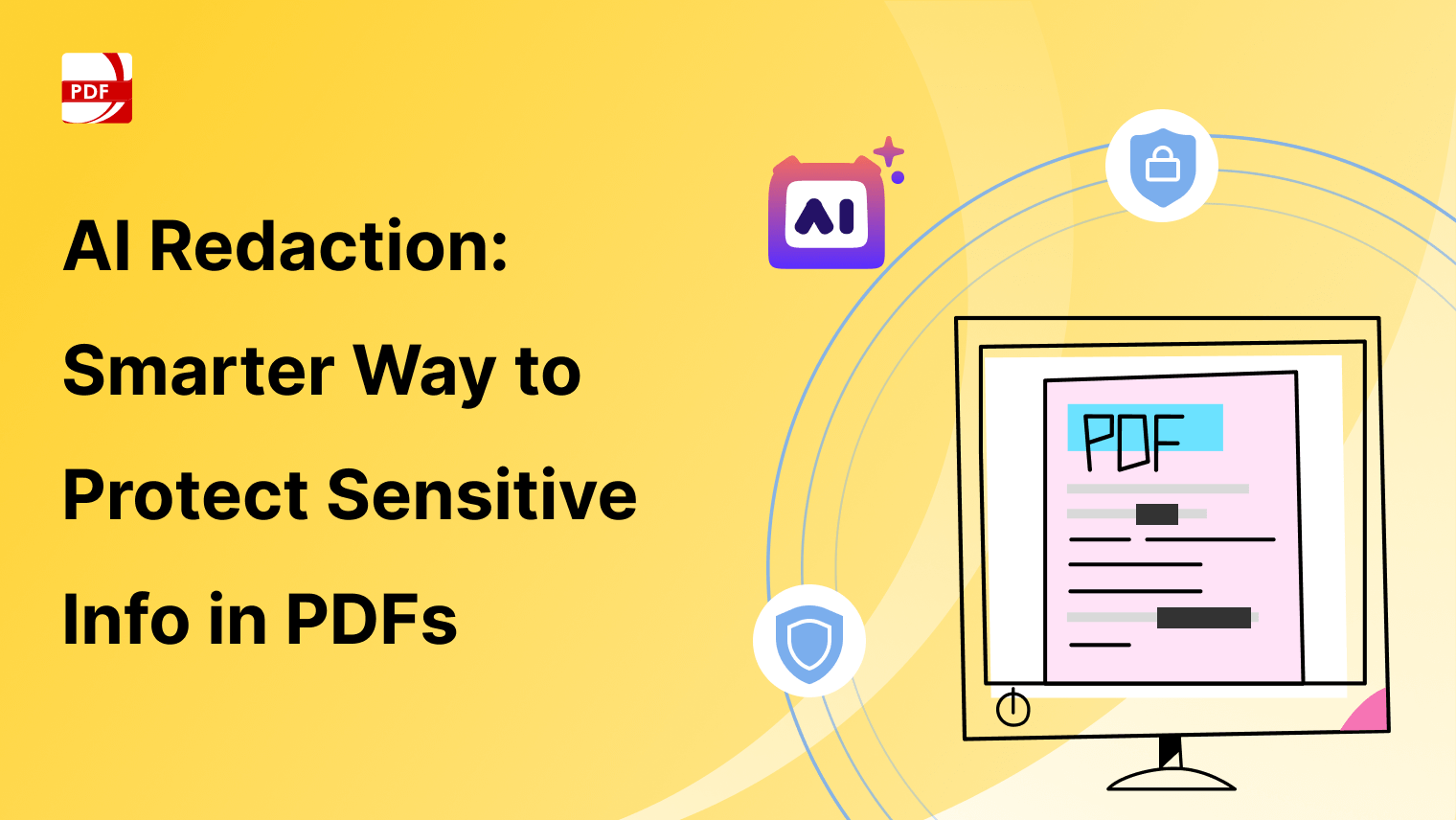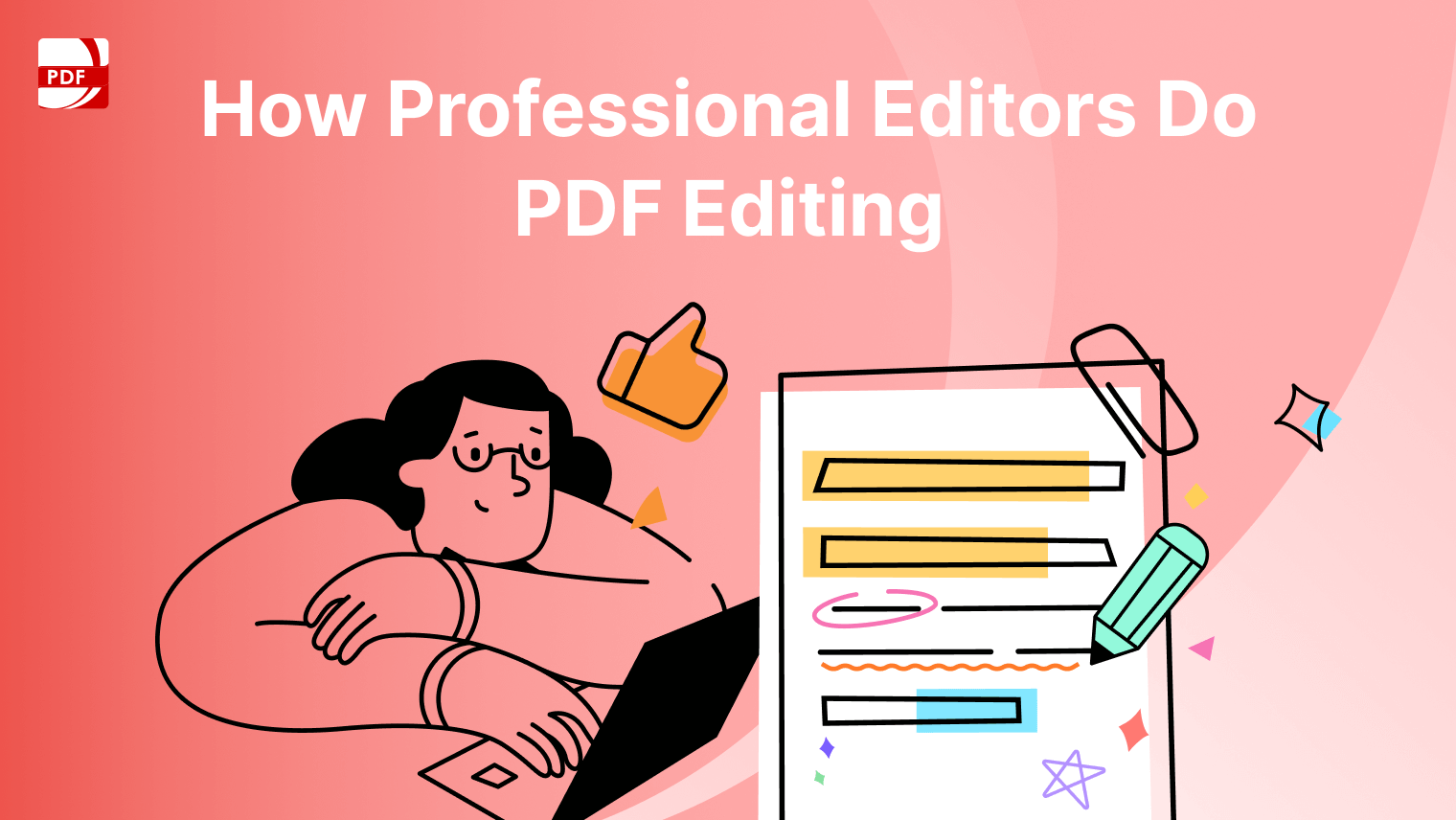Retiring from your job is a significant milestone in anyone’s life. It's a time of change, reflection, and stepping into a new chapter. One of the key steps in this process is writing a retirement letter. This letter is not just a formal notification of your departure, but it's also an opportunity to express gratitude and maintain positive relationships with your employer and colleagues.
In this blog post, we’ll guide you through the steps of writing an effective retirement letter, and introduce you to a convenient tool to simplify this process: PDF Reader Pro's Retirement Letter PDF Template.
What is a Retirement Letter?
A retirement letter is a formal document that serves as an official notice of your upcoming retirement.
It's a type of formal resignation letter, specifically tailored to address the transition from active employment to retirement. This letter is not just a mere formality; it plays a crucial role in ensuring a smooth transition for both the employee and the employer.
Explore our resume resource for crafting the perfect Gift Letter with our PDF template!
Characteristics of a Retirement Letter
- Formal Notice: It is a formal retirement letter that officially communicates your decision to retire. This document is essential for human resources records and for initiating retirement benefits and retirement plans.
- Transition Period: A retirement letter typically includes the notice period and outlines plans for the transition period. This helps the employer to prepare for your departure and arrange for necessary replacements or adjustments in the workforce.
- Positive Note: It's important to write retirement letters on a positive note. Expressing gratitude for the experiences and opportunities gained during your tenure can leave a lasting positive impression.
- Retirement Resignation Letter: While it’s similar to a resignation letter, a retirement letter specifically addresses your transition into retirement, as opposed to moving to another job.
- Email Address: Often, retirees include a personal email address in their retirement letter for future communication. This maintains the connection with former colleagues and the organization.
- Ample Notice: Providing ample notice about your retirement is crucial. It reflects professionalism and respect for the company’s time to manage the change.
The police chief in Blytheville, Arkansas, submitted his letter of retirement after returning from administrative leave, the city’s mayor announced Monday.https://t.co/3pbc8lslpM
— WREG News Channel 3 (@3onyourside) December 18, 2023
In essence, a retirement letter is more than just a formal letter; it’s a key step in your career lifecycle. It not only marks the end of your current professional chapter but also sets the tone for your departure and subsequent relationship with your former employer.
Writing this letter thoughtfully can ensure that you leave your job on good terms, with recognition for your contributions and a clear path for your employer to manage your absence.

Understanding the Purpose of a Retirement Letter
A retirement letter serves multiple purposes. It officially informs your employer of your decision to retire, provides a clear departure date, and offers a chance to express your appreciation for the time spent with the company.
It’s also a way to leave on good terms, preserving professional relationships that could be valuable in the future.
Key Elements of a Retirement Letter
Your retirement letter should include the following elements:
- A clear statement of your intention to retire
- Your planned retirement date
- A thank you section for the opportunities and experiences gained
- A brief mention of your plans post-retirement (optional)
- An offer to assist with the transition
Crafting the Right Tone
The tone of your retirement letter should be professional yet warm. Remember, this letter will be part of your final impressions at the company, so it’s important to strike the right balance between formality and personal touch.
Discover our Funeral Invitation PDF template for a respectful and dignified announcement.
Use a Retirement Letter PDF Template
To simplify the process of crafting your retirement letter, PDF Reader Pro offers a Retirement Letter PDF Template.
This template is designed to guide you through creating a professional and well-structured retirement letter.
Features of the Template
- Pre-Designed Format: The template includes all the essential elements of a retirement letter, laid out in a professional format.
- Customization: You can easily personalize the template with your details, retirement date, and specific messages.
- Ease of Use: With PDF Reader Pro, editing the template is straightforward, ensuring you can finalize your letter without any hassle.
- Accessibility: The template is accessible and easy to use for users of any skill level.

How To Write A Retirement Letter: Best Practices
Crafting a retirement letter is an important step in the retirement process. This official document serves as your formal retirement notice and sets the tone for your transition out of the workforce. To ensure your letter effectively communicates your intentions and leaves a positive impression, here are some best practices to follow.
Begin with the Basics
- Company Address: Start your letter with the company's address, followed by your current job title and the date.
- Formal Salutation: Address the letter to your supervisor or the HR department.
Clearly State Your Intention
- Letter of Retirement: In the opening paragraph, clearly state that you are writing to announce your retirement.
- Retirement Date: Specify the effective date of your retirement to clarify any retirement paperwork or policies that need to be addressed.
Reflect and Express Gratitude
- Acknowledge Your Time with the Company: Reflect on your years of service and mention any highlights or an incredible team you worked with.
- Express Gratitude: Thank your employer for the opportunities and experiences you had during your tenure.
Discuss Transition Plans
- Offer Assistance: Mention your willingness to help with the transition, whether it’s training a successor or helping with specific transition plans.
- Exit Interview: Indicate your availability for an exit interview if required.
Include Personal Contact Information
- Personal Email Address: Provide a personal email address or contact information for future correspondence.
Conclude Professionally
- Warm Closing: End the letter on a positive note, expressing your hope to keep in touch.
- Signature: Sign off with your name and, optionally, your job title.
Use Tools to Simplify
- Retirement Letter Template: Consider using a retirement letter template to ensure you cover all the essential points.
- Retirement Letter Samples: Look at sample retirement letters for inspiration and to understand the tone and structure.
Keep It in Your Employee File
- Save a Copy: Keep a copy of your retirement letter for your records, and ensure it’s added to your employee file.
By adhering to these best practices, your retirement letter will not only serve as a formal retirement notice but also as a cherished document marking the end of a significant phase in your career. It's a chance to leave on good terms and maintain positive relationships with your employer and colleagues.
Explore our thoughtful Funeral Announcement PDF template to honor and share the memory of your loved one.
How To Write A Retirement Letter: FAQ
How Early Should I Submit My Notice of Retirement?
It's generally advisable to submit your notice of retirement months in advance. This timeframe allows for smoother transition planning and any necessary retirement paperwork.
Should I Include Contact Details in My Retirement Letter?
Yes, it's a good practice to include your contact details, like a personal email or mailing address, in your retirement letter according to your retirement policy. This facilitates future communication and helps maintain relationships with coworkers.
How Can I Make a Lasting Impression with My Retirement Letter?
To leave a lasting impression, focus on expressing genuine gratitude and reflecting positively on your time at the company. A professional retirement letter that acknowledges your experiences and relationships can have a lasting impact according to good retirement planning.
Is It Appropriate to Mention Plans for Spending Time After Retirement?
While not mandatory, sharing your plans for spending time post-retirement can add a personal touch to your letter. It gives your colleagues a glimpse into your impending retirement life.
Should I Announce My Retirement to Coworkers Before Sending the Letter?
It depends on company policy and your preference. Some choose to share their retirement news with close colleagues before the formal announcement, while others wait until the retirement notice letter is officially submitted.
Can I Use My Retirement Letter to Invite Coworkers to a Retirement Party?
Yes, you can use your retirement announcement to extend an invitation to a retirement party. However, ensure it's done tastefully and doesn’t overshadow the primary purpose of the letter.
What Should I Include in Transition Documentation?
Transition documentation should outline important ongoing projects, key contacts, and any other information that will assist the person taking over your responsibilities.
Do I Need to Mention Returning Company Property in My Retirement Letter?
While not necessary in the retirement letter, make sure to follow company policy regarding the return of company property. This can usually be coordinated with your HR department or supervisor.
How Does Company Policy Affect Retirement Letters?
Company policy may dictate certain aspects of the retirement process, such as how far in advance you need to inform them, the required format of the retirement letter, and the process for transition documentation.
By considering these frequently asked questions, you can craft a retirement letter that effectively communicates your plans, maintains professionalism, and honors the relationships and experiences you’ve had during your career.
Writing a retirement letter can often evoke mixed feelings, marking both an end and a beginning. It's a time to reflect on your professional career, the talented people you've worked with, and the career accomplishments you've achieved. Whether you're leaving due to health issues, a difficult decision, or simply transitioning into a well-earned retirement, it's important to maintain a professional tone throughout your letter.
Remember to check your company handbook for any specific guidelines on retirement notices. Communicate directly with your supervisor about your current position and ongoing projects to ensure a smooth transition. Maintaining a polite tone in your letter helps preserve quality relationships and leaves the door open for future interactions. A handwritten signature adds a personal touch, reflecting your genuine appreciation for the dedicated team you've been a part of.
In closing, it's essential to approach this significant step with professional courtesy. Whether you're planning a farewell party or seeking advice from a career coach for your next steps, remember that the way you exit is as important as how you conducted yourself throughout your tenure. Leaving on a positive note establishes a lasting positive relationship with your former colleagues and sets the tone for the next chapter of your life.











 Free Download
Free Download  Free Download
Free Download





 Support Chat
Support Chat